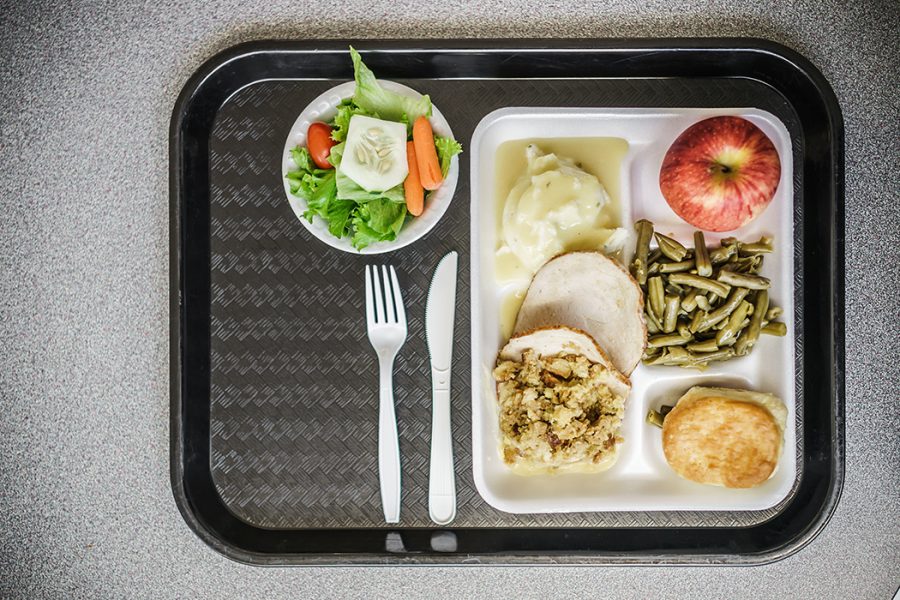The Student Push for Improved Lunches
March 4, 2022
Serving adequate school lunches is an essential goal for Charlottesville High school because of how many students rely on school meals as their primary source of nourishment. Not only are many students unsatisfied with the quality of school meals, but some feel the meals do not provide the essential nutrients necessary for a proper meal. KTR spoke with three C.H.S juniors concerned with the quality of school lunches.
“I think [admin] looks at it like students are just being dramatic, but think about the students that depend on that food every single day,” Gloria Gaye told KTR, “They probably have more opinions than anyone else and probably aren’t even satisfied with that food.” Although Gloria does not currently eat school lunches, she recalls the lack of flavor and sustenance in the meals when she did eat them regularly. Junior Jazmyn Carter-Page agreed that even something as small as salt and pepper packages along with the utensils would make a difference in the flavor of the lunches.
Similarly, junior Saba Wubet told KTR about when she used to eat school lunch, “Depending on what the food was, my satisfaction levels would be higher, but usually it was five out of ten [times].” Saba continued to express to KTR her desire to see school lunches become more accommodating to students with religious food restrictions. “There are religious situations that need to be fixed, like Halal” Saba added. C.H.S does have a very big population of Muslims, and they still struggle with eating school lunches because they don’t know what has touched it or what’s on it. So I definitely think there needs to be a section for specific eating needs.”
So why is it that students must continue to struggle with C.H.S school lunches? There are critical factors in the preparation of school meals that contribute to these issues.
The school has extremely limited resources concerning the food it provides students. School lunch mandates are required for all public high schools, requiring specific amounts of meat, grain, and fruit in every meal. These restraints limit the variety of meals public schools can offer, as well as the quality of the meals themselves. In an interview with Carlton Jones, the Charlottesville City Schools Nutrition Coordinator, he told KTR, “On a daily basis we have to serve two ounces of meat or meat alternative. We have to serve two ounces worth of grain, so a lot of times we serve a roll with our chicken nuggets to meet the requirements. We also have to serve a minimum of ¾ cup of vegetables and ¾ cups of fruit.”
The process to get food into the school is multi-stepped with many details that are difficult to alter. One important detail is the provider of the food in the first place. Mr. Jones addressed questions from KTR, asking why the school could not simply hire a farmer to grow the food for the lunches. “When we order food for the schools, it has to come from an approved distributor, so the farmer would have to be able to keep up with our production. A local farmer might be able to keep up with it for a while but not for the whole year. We use an approved distributor who can help with that” he concluded.
Another restriction to favorable lunches is meal costs. School meal boards are allotted money to spend on each meal they serve, usually around $3.50 per lunch. However, as Mr. Jones told KTR, “With that money we purchase all the food, pay all the staff, pay all the benefits, and [pay] for the supplies. So for a normal lunch we can normally afford to spend $1.25.” This type of budget leaves limited room for variety.
In order to continuously work on improving the school lunch system, Charlottesville high school has partnered with Cultivate, which according to their website, believes “working together to grow gardens, share food and power, and advocate for just systems- [to] cultivate a healthy community for all.” Charlottesville City schools have partnered with Cultivate in order to guide students through healthy eating and gardening. “We’ve partnered with Cultivate for the last six years I’ve been here, and they help us organize our nutrition committees and they run our harvest of the month program,” Mr. Jones told KTR, also adding“They helped out a lot with volunteering during the pandemic, and we partnered with them on some grants.”
Mr. Jones also informed KTR that Cultivate recently hired a farm-to-school coordinator to be placed within C.H.S during lunch hours. This coordinator will be available to answer questions for students about healthy eating, nutrition, and any other food and farm-related questions they may have.
KTR asked Mr. Jones to address community concerns regarding future years of school lunches. The main concern was whether the free and reduced lunch program would continue. Mr. Jones answered that the free and reduced lunch program is not something controlled by Charlottesville City Schools, but instead was set up by the USDA during the pandemic. “It has been very successful and we have seen more students eating, and I hope it will continue,” remarked Mr. Jones. However C.H.S lunch coordinators will likely not know if the program will continue until this summer.
On the student side of things, Mr. Jones recommends students continue voicing concerns and asking questions about school lunches. If a student has a complaint, the best way to see changes is by bringing that complaint to administration rather than containing it among students. Gloria Gaye noted, “Teacher’s aren’t promoting [changes] as well or maybe student’s aren’t raising awareness. It has to be fifty fifty for each side.”
Saba Wubet agreed with this and added, “I also feel like the admin isn’t doing anything because no one’s talking to them, it’s only a handful of people talking to their friends. I think if there was more of an impact with the student body there would be an impact on school lunches.”
Providing meals that students can and will eat can affect student social, academic, and athletic performances, especially for students without food alternatives outside of school. Fortunately, administrators have acknowledged the issues with school meals and are making steps towards improving them. The student body should continue voicing their concerns and taking advantage of the new implements by administrators. The best way to guarantee change and impact is by raising awareness and communicating with those in authority.






